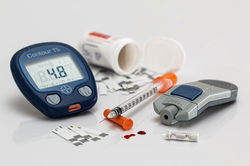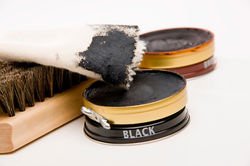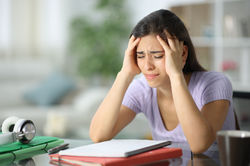

A Checklist of Constipation Causes & Treatment Options
- Included:
Pelvic floor Dysfunction
This list can help you communicate effectively with your medical team and better understand your situation.
Our constipation tortoise will help us navigate this journey.

Turtling is my cardio
Please use this guide as a quick reference to identify possible causes and potential treatment approaches to your constipation.
This guide is not intended for self-diagnosis or to offer a thorough explanation of these factors. Instead, it can serve as a springboard for additional research or help you formulate questions to ask your doctor during your visit.
Here you can jump ahead to a section:

List of constipation symptoms.
Let's review the Adult Rome IV criteria for defining functional constipation:
 Functional constipation may be indicated if you have had two or more of the following symptoms over the past six months: |  Fewer than 3 spontaneous bowel movements per week. |
|---|---|
 Straining for more than 25% of defecation attempts. |  Lumpy or hard stools for at least 25% of defecation attempts. |
 Sensation of anorectal obstruction or blockage for at least 25% of defecation attempts. |  A sensation of incomplete defecation for at least 25% of defecation attempts. |
 Manual maneuvering required to defecate for at least 25% of defecation attempts. |
Another helpful tool for determining if you have constipation is the Bristol Stool Chart. This widely used chart can be referenced when discussing your symptoms with your doctor.

On the Bristol Stool Chart, types 3 and 4 are considered normal.
Constipation is typically associated with types 1 or 2.

Tortoise Tip:
If you have type 1 or 2 on the Bristol Stool Chart, please don't let it cause you anxiety. It takes time to learn how to achieve softer stools. It's more important to focus on not straining, as straining can damage your tissues.
Additional symptoms that can be associated with constipation:
 Bloating |  Abdominal pain or cramps |
|---|---|
 Frequent burping or gas |  Fecal incontinence or smears in underwear |

Tortally the truth:
The best parameter for constipation is not how many times you go a week, but how difficult it is to have a bowel movement.

List of potential constipation causes.

1. Lifestyle causes:
The causes of constipation are multifactorial, so please make sure you pay attention to lifestyle factors:
 Being too busy for bathroom breaks |  Being distracted when on the toilet, disrupting natural processes |
|---|---|
 Ignoring the urge to go |  Sitting scrunched up for hours in a day |
 Stress, anxiety and depression |  Not exercising regularly |
 A disrupted circadian rhythm |  Changes in routine |
 Holding back bowel movements |  Travelling or going on vacation |
 "Not my toilet" anxiety |

2. Dietary causes:
Diet is fundamental to controlling your constipation. Consider this list of factors that may play a role in causing your constipation:
 Not eating enough dietary fiber |  Not drinking enough fluids |
|---|---|
 For some milk and dairy products |  Changing your diet |
 Dehydration resulting from beverages like soda, coffee, and alcohol |  Processed foods and meats, fried foods, and refined carbs |
 A diet heavy in meat |

3. Medication causes:
The list of medications that can contribute to constipation includes:
 Pain medications, such as narcotics and NSAIDs |  Over-the-counter antacids containing aluminum or calcium |
|---|---|
 Antihistamines |  Anticholinergics used for overactive bladder, urinary urgency or frequency |
 Blood pressure medication such as channel blockers and diuretics |  Oral contraceptives |
 Antidepressants (SSRI's) and tricyclic antidepressants |  Antispasmodics used for COPD or asthma medications |
 Anti-nausea medication |  Iron and calcium supplements |
 Cholesterol medications such as statins and bile acid sequestrates |  Muscle relaxant drugs |

Please consult your doctor about your medications and how it may relate to your constipation.

4. Medical causes:
It is important to see your doctor to find out what is causing your constipation. Some health conditions can affect your nerves, muscles, or hormones, which may lead to constipation.
 Constipation-predominant irritable bowel syndrome (IBS) |  SIBO with intestinal methane overgrowth |
|---|---|
 Overgrowth of bacteria or a fungus |  Celiac disease |
 Nerve dysfunction or damage, and other neurological conditions |  Diabetes |
 Hypothyroidism, or hyperparathyroidism |  Hypercalcemia |
 Multiple sclerosis or other autoimmune diseases |  Parkinson's disease |
 Kidney disease |  Eating disorders |
 Colorectal cancer |
Some medical conditions are structural and can cause constipation by slowing processes. The opposite can also happen, where structural problems happen due to straining, because of the constipation.
The following is a list of problems frequently associated with constipation or straining:
 Pelvic floor dysfunction |  Hemorrhoids |
|---|---|
 Pelvic organ prolapse |  Rectal prolapse |
 Anal fissures |  Hiatal or other hernias |
 Diverticula |
Straining due to constipation can also have the following repercussions:
 Tearing of tissue fibers during extreme straining |  Heart arrhythmias or cardiac events if you are at risk |
|---|---|
 Fainting |

Tortoise Teaching:
Occasional straining is not a problem, but repeated straining can cause or aggravate structural bowel problems.

4. Pelvic floor dysfunction and constipation:
Before moving on, let's take a deeper dive into pelvic floor dysfunction, which can be multifactorial and frequently associated with constipation and straining. But first, what is the pelvic floor?
The pelvic floor is a group of muscles at the bottom of the pelvis:
 The pelvic floor forms a sling to hold your organs in place. |  It requires good coordination to perform its various functions. |
|---|---|
 Contracting, or pulling the pelvic floor muscles up and in, is also called a Kegel. |  The pelvic floor muscles support physical activity. |
 The pelvic floor supports your pelvis, spine and core during heavy lifting. |  It controls urination. |
 The pelvic floor is essential for sexual activity and satisfaction |  The pelvic floor needs to be able to lengthen and relax while having a bowel movement. |
 The pelvic floor helps to prevent leakage of urine, stool and prevents gas to escape at inappropriate times. |

What is pelvic floor dysfunction?
Pelvic floor dysfunction refers to any condition that affect the efficiency of how the pelvic floor muscle system operates. It may include structures such as nerves, blood vessels, lymph drainage and fascia or connective tissue that surrounds or imperforates the pelvic floor muscles. Due to the fact that the pelvic floor muscles provides a pathway and controls voluntary operation of the sphincters for the bowel, bladder and sexual organs, any dysfunction in the way it operates will affect these systems.
The following list outlines different factors that can play a role in pelvic floor dysfunction, as well as other structural factors that can lead to constipation:
 Poor pelvic floor muscle coordination (dyssynergia) |  A weak pelvic floor and core. |
|---|---|
 A tight pelvic floor. |  A pelvic floor that has lost structural integrity, such as in organ prolapse. |
 Inability of the pelvic floor to relax when having a bowel movement or voiding. |  Inability to isolate the pelvic floor muscles when needed. |
 Habitual straining. |  Weak sphincters. |
 Scar tissue after giving birth or surgeries. |  History of pelvic floor injuries from falling on your tailbone. |
 Nerve damage in your pelvic floor or anal area. |  Altered integrity of pelvic blood flow. |
 Spasms of the pelvic floor muscles. |  Habitual sitting and movement postures affecting the pelvic floor. |
 Hyper/hyposensitive rectum |

Please consult a pelvic floor therapist to see if any of these apply to you.

5. Other causes of constipation:
 Female gender |  Age >65 years |
|---|---|
 Pregnancy |

Seeing your doctor for constipation
The following is a list of red flags that should prompt you to schedule an appointment with your doctor:
 Bleeding from the rectum |  Black stools or blood in your stools |
|---|---|
 Vomiting |  Stomach pain that is severe or does not go away |
 Change of shape or color of your stools |  Weight loss that you cannot explain |
 Constipation symptoms affecting the quality of your life |  Your symptoms last longer than three weeks or you cannot get rid of it |
You should also see your doctor for:
 Annual colorectal screen |  To plan when you should have a colonoscopy done. |
|---|---|
 Colon cancer is a cancer that can be prevented with screening. |

Constipation treatment options
1. The first step:
Lifestyle modifications and the use of over-the-counter medications.
Food recommendations:
 Increase fluid intake. |  Increase fruits, vegetables and whole grains. |
|---|---|
 Distinguish between soluble and insoluble fiber, especially with slow motility. |  Take a daily fiber supplement if you need to. |
 Consider consulting a professional about diet options. |  Consider eliminating gluten. |
 Consider cutting out dairy for a while. |  Talk to a specialist about a low fodmap diet. |
 Clean out your pantry and stock with healthy foods. |  Try a hot drink in the morning. |
 Some people benefit from drinking coffee in the morning to facilitate a bowel movement. |  Considering drinks high in caffeine can lead to dehydration. |
 Drinks containing alcohol, and those with excessive sugar can lead to dehydration. |  Talk to your doctor to see if your medications are causing constipation. |
 Consider over-the-counter options |  Consider other natural treatment options. |

No rush I'm on tortoise time:
Introduce additional fiber slowly, while also increasing your fluid intake. Adding fiber too fast may make you more constipated or cause bloating or abdominal pain. Make sure to focus on soluble fiber vs insoluble fiber when you have slow motility or your bowels move slowly. Soluble fiber could improve symptoms of IBS with varying effects on abdominal pain.
Other recommendations:
 Use the bathroom 20 min after a meal. |  Don't ignore the urge to go. |
|---|---|
 Adjust your toilet posture by adding a footstool. |  Try leaning forward and then back a few times when on the toilet to facilitate a bowel movement. |
 Massage your stomach to help with the constipation. |  Make sure you get a good night's sleep. |
Exercise recommendations for constipation:
 Kegel exercises focussing on relaxing your pelvic floor muscles |  Teaching you breathing exercises to expand your lower rib cage, so that your diaphragm moving up and down, can facilitate optimum organ movement. |
|---|---|
 Stretches for your abdomen to facilitate GI motility. |  Knee hugs |
 Twisting exercises |  Child's pose |
 Pelvic tilts on a therapy ball |  Blowing up balloons while in an upright posture helps strengthen the diaphragm and facilitate organ movement |
 Daily walk 20 min or 1 mile |
2. The second step:
If you still struggle with constipation, consider an evaluation by a pelvic floor therapist for possible pelvic floor dysfunction.

Physical therapy for constipation
After a thorough evaluation, your therapist may address the following:
 Reviewing your toilet posture and suggest a foot stool. |  Teaching you correct bearing down mechanics during a bowel movement |
|---|---|
 Re-training of your pelvic floor muscles to contract and relax at the right time. |  Refine pelvic floor muscle coordination. |
 Kegel exercises focussing on relaxing your pelvic floor muscles |  Teaching you breathing exercises so that your diaphragm can facilitate optimum organ movement. |
 Addressing posture to facilitate GI motility. |  Reviewing your lifestyle, diet, and habits with you. |
 Releasing scar tissue from surgeries that may affect bowel movement. |  Providing visceral manipulation techniques to loosen adhesions between organs. |
 Strategies to help the nervous system for optimum vagus nerve function. |  Teaching you how you can use transcutaneous electrical nerve stimulation (TENS) for constipation |
 Biofeedback for pelvic floor retraining, which allows you to view your pelvic floor performance on a computer screen. |  Balloon biofeedback or bowel re-training if appropriate. |
3. The third step:
Surgery is rarely needed and is usually only done when there is a structural cause to your constipation.


Shell me more!
Fun facts about constipation
Here are some interesting facts about constipation and our gut:
 Two thirds of our immune system is situated in our gut. |  The gut temporarily becomes more porous after antibiotics, stress or alcohol. |
|---|---|
 Our small intestine works better to extract all the good stuff when we are relaxed after a meal. |  If we stop listening to our body (urge), then it just gives up and stop talking to us. |
 Giving birth can decrease the communication between the sphincter and pelvic floor muscle. |  When you bounce on a trampoline, your gut bounces with you. |
 Cooked food can contain more soluble fiber. |  Cooked food helps with bowel movements by making some foods easier to digest. |
 Soup can be a fun way to increase fluid intake, especially during winter. |  Rumbling in the tummy does not mean you are hungry, it means your intestines is cleaning itself. |
 Chewing your food well, gives your stomach a break. |  Be patient. Everything with the large intestine takes time. |
 Withholding just twice trains the muscles and nerve to start working backwards. |  Ignoring the urge for two days can lead to constipation. |


